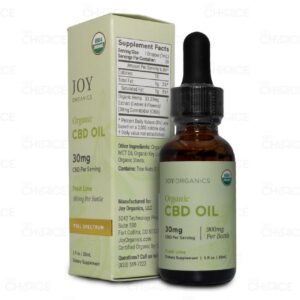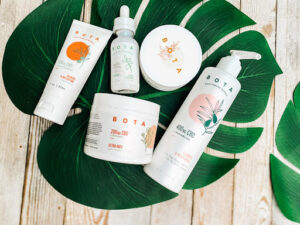What is a CBD Certificate of Analysis (And Why Should I Care)?
There are a few things to know about certificates of analysis, also known as CoAs, and the first thing to know is this: not all companies do them.
This is important. The very fact that a company goes to the expense and effort of getting a CoA performed on their CBD (and other) products—and makes it available to the public—is an important piece of information. It tells you a lot about the commitment and integrity of the company.
I’ll give you an example. I recently got a notice of a voluntary recall from a well-known company in the natural products industry. This company had found, through its own CoAs, that one of their products contained a pesticide residue that the company deemed unacceptable for their products. The amount found was well within the legal limits of safety, mind you, but that wasn’t good enough for this particular company, so they recalled the product.
Making CoAs readily available to customers speaks to the integrity of a company

That certainly makes my point about the kinds of companies that do CoAs and make them available to you. They’re usually the good guys. That said, it’s still important to know what’s in a CoA and how to read and evaluate it.
The purpose of a CoA is to tell you, the consumer, what’s in the product, and—equally important—what’s not in the product. Let’s start with the latter category first.
What is a CBD Certificate of Analysis
What you don’t want to see on a CoA
Something we definitely do not want to see on a CoA is evidence of the presence of heavy metals. A good CoA will test for arsenic, lead, mercury and cadmium. The presence of these metals are measured in parts per million (notated on a CoA as ppm), and should be less than what’s called the DL (detection limit). The detection limit is .01 ppm. If the CoA you’re looking at shows <.01 on all four metals, you’re in good shape!
The next item on the “stuff you don’t want in your CBD product” list is pesticides. And they come in all kinds of “flavors”: organochlorine pesticides, organophosphorus pesticides, organonitrogen pesticides, synthetic pyrethroid pesticides, herbicides… shall I go on? You don’t want any of them. The CoA should say ND (non-detectable) next to every one of the dozens of pesticides for which your product is tested.
And let’s not forget microbials. Salmonella, yeast, E.coli and mold—measured in cfu/g (colony formulating units per gram)—should all come back negative.
Finally, you do not want any residual solvents (like ethanol) to remain in your CBD, and a good CoA will test for that. According to the United States Pharmacopeia, solvents fall into three classes. Class One are known or suspected carcinogens; Class Two are strongly suspected to be damaging to humans, while Class Three solvents are considered to have low toxic potential. All three classes should be tested and if nothing is found, it should say “conforms to USP 467.”
What is a CBD Certificate of Analysis

What you do want to see on a CoA
Now that we’ve got the bad stuff out of the way, let’s look at what should be in a CBD product, starting with… CBD! A CoA will indeed tell you how much CBD is in a given amount (for example, a capsule). It will also assure you that there is no THC, because it will measure both THC (d-9 THC) and the inactive form of THC, THCA. (As a reminder, for a product to be classified as hemp, THC needs to be less than 1/3 of a percent, or .03%, and the CoA will indeed confirm this.)
Some manufacturers will also test for terpene content and may list the actual terpenes found in the product tested.
Though CoAs look complex, if you know what to look for, they’re pretty easy to read. Just make a mental checklist: Solvents, Pesticides, Microbials, Metals, Solvents, CBD, THC and terpenes. If the CoA confirms the absence of the stuff you don’t want and the presence of the stuff you do—well then, you’re looking at the real deal.
CBDWrold Mall makes finding the CoA on your CBD simple

All CBDWorldMall products are third party tested for heavy metals, toxins, cannabinoid levels (including CBD and THC) and other results. We make it easy to get lot-specific test results, directly from our website, for every bottle of CBD hemp oil we sell. Use the QR code on our labels and boxes or visit cbdworldmall.com/ to see what’s in your bottle of CBD World Mall CBD Hemp Oil. With our online tool, it’s easy to check before you buy.
Please go to CBDWorldmall.com for more information
For more hemp info please go to https://www.calmerwaves247.com

